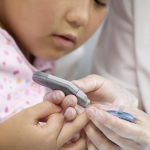Awareness and knowledge can help prevent health complications. Education plays an important role in informing people about the condition and how best to manage it through a healthy diet, regular exercise and necessary medication. This holds especially true for Diabetes which is a chronic condition caused by high blood sugar levels.
The 7th International Diabetes Summit 2023 organised by Chellaram Diabetes Institute, Pune was one such attempt to make an impact in the field of Diabetes. The three-day summit witnessed numerous national and international dignitaries connect virtually and speak on the latest findings, techniques and technologies in the field of Diabetes – from clinical management to patient care, from the current challenges to the latest innovations in the world of Diabetes.
Following are some of the topics discussed during the three-day summit:
Early-onset Type 2 Diabetes
Dr Shivani Misra (Consultant in Metabolic Medicine and faculty member at the Imperial College London, UK)
 n
n
discussed case studies of Early-onset Type 2 Diabetes that illustrated the clinical evidence. Early-onset Type 2 Diabetes is usually defined as occurring under the age of 40 years. Careful diagnostic assessment is required to diagnose this type of Diabetes correctly, as this has a major impact on Diabetes management. This early-onset (also called ‘young-onset’) Type 2 Diabetes is concerning, as it results in a longer lifetime exposure to hyperglycaemia (high blood glucose) and the consequent complications. There is also emerging evidence that early-onset Type 2 Diabetes is a more aggressive disease compared with later-onset Type 2 Diabetes, and is accompanied by earlier onset and more rapid progression of macrovascular (affecting large blood vessels) and microvascular (affecting smaller blood vessels, such as the capillaries) complications.
In early-onset Type 2 Diabetes there is greater insulin resistance than in later-onset Type 2 Diabetes, Beta-cell failure also progresses more rapidly than in later-onset Type 2 Diabetes. Obesity and deposition of abdominal fat, drives insulin resistance and obese individuals initially have higher amount of insulin in the blood than what is considered healthy to compensate for this. When insulin production proves inadequate, Diabetes develops. Early-onset Type 2 Diabetes may also develop following puberty, during which increased levels of growth hormone generate insulin resistance.
Diabetic foot problems
Dr. Andrew JM Boulton (Professor of Medicine at Manchester University, UK)
 n
n
discussed evidence based management of diabetic foot problems in 2023. Diabetes, a disorder of high glucose levels, can harm various organs of the body if it is uncontrolled or there is a lack of proper care management. The long duration of uncontrolled glucose levels in the bloodstream damages the nerves. This is known as peripheral neuropathy. It affects the blood vessels resulting in decreased or complete obstruction of the blood flow towards the extremities (feet). This is called peripheral arterial disease. Neuropathy and peripheral arterial disease either individually or together result in serious problems like non-healing ulcer, infections and even amputation. People with Diabetes often don’t realise or know that they have a problem until the resulting pain becomes apparent.
Peripheral Neuropathy is the most common problem among all long-term complications of Diabetes, affecting around half of the people with Diabetes. A longer duration of Diabetes and poor blood glucose control are major risk factors for the development of diabetic peripheral neuropathy. Peripheral neuropathy initiates a series of events which affect the sensory nerves responsible for the various types of sensation.
Patient with sensory neuropathy either complain of pain or suffer a complete loss of sensation. Most of the people with peripheral neuropathy show symptoms of numbness or a ‘cotton and wool’ sensation in the feet. Some individuals display painful symptoms like burning, pricking, discomfort and electric shock-like pain often accompanied by disturbed sleep.
It is important – for any person with a foot wound – to follow good wound care practice like offloading – relieving weight from the wound site and wound care with advanced dressing products is also helpful. It is well known that people with diabetic foot ulcers need to rest their feet. This is because putting pressure on the foot by walking can cause ulcers to deepen, be infected and further complicated.
For more information, visit: www.cdidiabetessummit.org














